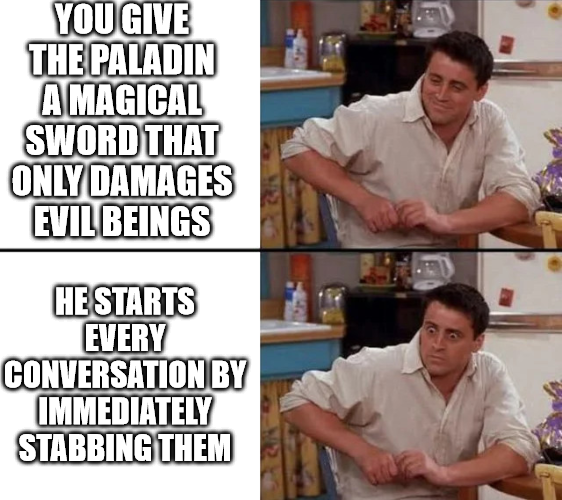this post was submitted on 16 Oct 2023
934 points (98.7% liked)
RPGMemes
11848 readers
751 users here now
Humor, jokes, memes about TTRPGs
founded 2 years ago
MODERATORS
you are viewing a single comment's thread
view the rest of the comments
view the rest of the comments

As if you aren't evil by lying to the player.
And as if they won't successfully dispute it.
Good thing the DM can't be stabbed by it! How would they dispute it without metagaming? Wouldn't that be a great plot arc?
D&Dpool breaks the 4th wall!
Does the Paladin trust their blind faith in the weapon, or do they consider the morality of their actions by themselves? Consequentialism vs Deontologism, essentially. The lie reinforces the blind faith to make the situation work.
I put an ethical dilemma in front of a Paladin. I do not consider this evil.
No, you knowingly put innocent people in harm's way because you wanted to get one over on someone. That, by anyone's standard except yours, is evil. That ain't gonna change.
...This is fiction. These are fictional innocent people. The fictional paladin played by a real person is doing fictional evil. The real person at the table is just a person playing a game. Nobody is in harms way.